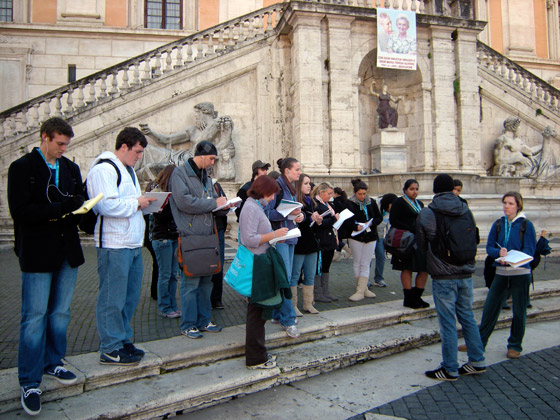The word “bilingualism” may be defined as the ability to speak two languages fluently, or the habitual use of two languages. Being able to speak more than one language, or to at least be conversational in a language other than the one learned in childhood, can prove to be advantageous in several ways.
The Advantages of Being Bilingual
 Henri Delacroix, a French psychologist stated, “The individual’s whole experience is built upon the plan of his language.” The ability to converse in a different language opens up many windows and doors of opportunity for an individual not only in an economic sense as The Economist emphasizes by stating that “being at least bi-lingual could increase the average American’s retirement fund somewhere in the ballpark of $67,000 over the course of a career,” [1] but as New York Times columnist Nicholas Kristof so adequately pointed out, it also allows a person to have extraordinary cultural experiences.
Henri Delacroix, a French psychologist stated, “The individual’s whole experience is built upon the plan of his language.” The ability to converse in a different language opens up many windows and doors of opportunity for an individual not only in an economic sense as The Economist emphasizes by stating that “being at least bi-lingual could increase the average American’s retirement fund somewhere in the ballpark of $67,000 over the course of a career,” [1] but as New York Times columnist Nicholas Kristof so adequately pointed out, it also allows a person to have extraordinary cultural experiences.
Ferdinand de Saussure, a Swiss linguist, brilliantly stated, “In the lives of individuals and societies, language is a factor of greater importance than any other. For the study of language to remain solely the business of a handful of specialists would be a quite unacceptable state of affairs.” And Frank Smith, Psycholinguist, Professor of Education and author, stated, “One language sets you in a corridor for life. Two languages open every door along the way.”
The State of Utah Sets a Precedent in Bilingualism
New York Times columnist Nicholas Kristof stated,
Utah’s capital, Salt Lake City, is an example of a city mixing together with different languages — largely because of the high concentration of members of The Church of Jesus Christ of Latter-day Saints who served missions abroad — and it’s something young people should pursue. [1]
He also points out that language diversity alone is not what sets Utah apart from most other states, but rather, it is language diversity intermingled with a “wealth of international experience,” which he notes is in short supply in the American higher educational system. He further stated,
One of the aims of higher education is to broaden perspectives, and what better way than by a home stay in a really different country, like Bangladesh or Senegal? Time abroad also leaves one more aware of the complex prism of suspicion through which the United States is often viewed. If more Americans had overseas experience, our foreign policy might be wiser. [2]
 According to the University of Utah, there are more than 130 languages spoken in commerce in Utah on a daily basis, making Utah a center for both trade and global companies. Thus, it is not uncommon to find the state listed at the top of Forbes list as one of the best states in which to conduct business.
According to the University of Utah, there are more than 130 languages spoken in commerce in Utah on a daily basis, making Utah a center for both trade and global companies. Thus, it is not uncommon to find the state listed at the top of Forbes list as one of the best states in which to conduct business.
Perhaps it was Ludwig Josef Johann Wittgenstein, an Austrian-British philosopher who worked primarily in logic, the philosophy of mathematics, the philosophy of mind, and the philosophy of language who stated it best when he said, “The limits of my language are the limits of my world. If we spoke a different language, we would perceive a somewhat different world.”
About Keith L. Brown
Keith L. Brown is a convert to The Church of Jesus Christ of Latter-day Saints, having been born and raised Baptist. He was studying to be a Baptist minister at the time of his conversion to the LDS faith. He was baptized on 10 March 1998 in Reykjavik, Iceland while serving on active duty in the United States Navy in Keflavic, Iceland. He currently serves as the First Assistant to the High Priest Group for the Annapolis, Maryland Ward. He is a 30-year honorably retired United States Navy Veteran.



